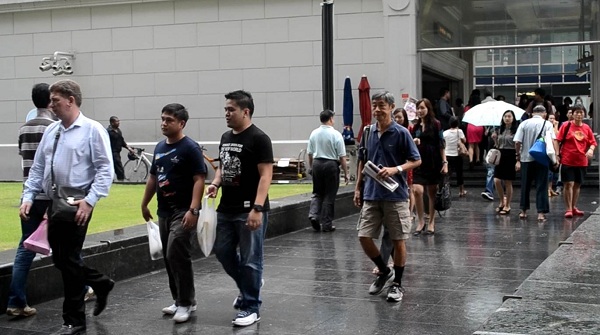
By Daniel Yap
Where once businesses were all caught up with the White Paper’s plan to slow down foreign worker growth (including some short-sighted comments addressed in my earlier article), Budget 2013 has them focused on a new potential deal-breaker – a yet-undefined Singaporean-first HR policy, probably some form of labour market testing that requires companies to prove that reasonable effort has been made to place a resident in the job before considering foreigners.
Numerous stories of local PMETs (professionals, managers, executives, technicians) being replaced by foreigners have been circulating on the Internet, and their claims of cronyism and preferential hiring of fellow countrymen have stoked the embers of xenophobia in our otherwise multicultural island. Indeed, the introduction of labour market testing will signal a policy win for Mr Patrick Tay (MP for Nee Soon GRC), who in his capacity as director in charge of PME issues at NTUC, has long been calling for such a move.
It would be wildly unrealistic to think that, in combination with a loose immigration policy, Singaporeans should be forced to compete in an “open economy”. History and international law give sufficient cause for states to give preferential treatment to their citizens and residents. But how much should we do to give Singaporeans an edge on our home turf? What are the costs?
One of Singapore’s strengths as a business hub is the ease of doing business here. Our robust yet simple bureaucracy is something that we ought to take pains to preserve. Having had the experience of incorporating legal entities both locally and in the United States (California), I found the process in Singapore simpler by magnitudes. The same goes, generally, for operating and maintaining a business. Singapore topped the World Bank’s “Ease of Doing Business” ranking for the last seven years straight.
Whatever system we end up using needs to be light on the red tape: no onerous paperwork, no double-checking of rules, no complicated new system. It needs to make sure Singaporeans get first bite at job vacancies, especially PMET jobs and especially in industries where supply of such labour from overseas is abundant and cheap.
Ultimately, the jobs that Singaporeans shun are already well known – they tend to be jobs with odd or long hours, or jobs that involve largely manual labour. Pay may not always be the main issue but is part of the equation. Until these jobs become more attractive, labour market testing will be unnecessary as long as levies and quotas ensure that cheap foreign labour does not depress wages.
Work Permit and S-Pass quotas are already in place for those earning less than $3,000. With the introduction and development of more refined industry-specific quotas, we should continue to rely on this framework to keep positions open at these job roles for residents. As long as our resident population continues the trend towards a higher proportion of PMEs (one in three residents today are PMEs), implementing a “Singaporean first” hiring framework for this group will not be a pressing concern.
So labour market testing will only have a worthwhile effect for jobs that fall into the EP category (and perhaps some jobs that straddle the top end of S-pass and the lower end of EP). Some developed countries that practice labour market testing are Australia, New Zealand and the United Kingdom. Labour market testing there generally consists of a series of “tests” – that the job be advertised at fair rates and conditions to locals for a certain period of time on some standardised media without any suitable takers before it can be offered to a foreigner.
To lessen the burden of having to test every single hiring decision, lists of exceptions are made. The question for Singapore is really what kinds of exceptions we will be using. Here are some suggestions:
• A list of “shortage occupations”.
• Intra-company transfers where a candidate has fulfilled a minimum period of employment with the company.
• Graduates of local tertiary institutions within the last 12 months.
• Certain government visa schemes and scholarships.
We can also implement a system of EP thresholds (not as severe as dependency ratios) either by industry/sector or by job function (or both), much like how WPs and S-Passes are rationed. EPs granted past this number are then subject to labour market testing.
To reduce hiring delays, a valid labour market test for a job can remain valid for a period of 3 months from the date of the completion of the initial test. This allows companies to pre-empt expected labour shortages and maintain what is essentially in-principle approval to hire foreigners without having to wait for a labour market test to be completed before filling the role.
Ultimately, our desire to put Singaporeans first should not significantly hinder the conduct of business in Singapore. At the same time, the testing process should not be so lax that it descends into a farce. Implementing labour market testing for higher-end jobs will be a good start as long as there are enough reasonable exceptions to minimise the amount of paperwork that needs to be done.
—————-
Daniel Yap owns a small business in the creative industry and has been a professional writer for over a decade.
Join IPS Commons’ Facebook page here.
